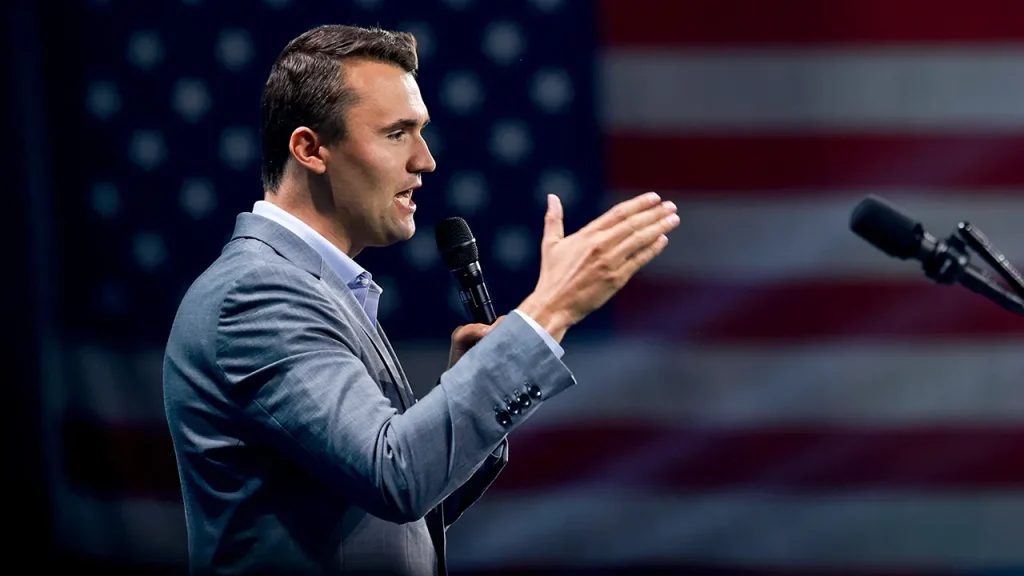The Lasting Impact of Charlie Kirk’s Message and Legacy
In the wake of Charlie Kirk’s tragic death on September 10 during “The American Comeback Tour” at Utah Valley University, a profound discussion has emerged about why the Turning Point USA founder may have been targeted. Dr. Wendy Patrick, a career prosecutor and author, suggests that Kirk wasn’t simply targeted for his conservative views but for the exceptional reach and influence of his message across diverse audiences. Patrick proposes a sobering theory: that the fear of influence may be a driving factor behind political violence. “People were listening to the content of what Charlie Kirk had to say,” she noted, pointing to how his ability to connect with audiences made his message particularly powerful—and potentially threatening to those who opposed him.
Kirk’s influence transcended national boundaries, as evidenced by the international response to his death. Vigils were held not only across American university campuses but in major cities around the world—London, Sydney, and Berlin among them. This global reaction speaks volumes about the reach of Kirk’s message and the connections he forged with people worldwide. Perhaps most telling was the memorial service held at State Farm Stadium in Glendale, Arizona, which reportedly drew between 90,000 and 100,000 attendees on September 21. These demonstrations of grief and respect suggest that Kirk had tapped into something that resonated deeply with many people, regardless of their geographical location or background.
What made Kirk’s approach distinctive wasn’t necessarily the content of his conservative message, but rather the method through which he delivered it. According to Patrick, Kirk wasn’t interested in winning debates through confrontation; instead, he sought genuine conversation with those who held opposing viewpoints. “What was new is the boldness, gentleness and graciousness with which Charlie Kirk was able to explain” his perspectives, Patrick observed. This approach allowed Kirk to engage with those who disagreed with him in ways that fostered understanding rather than division. His style created openings for people across the political spectrum to consider his ideas without immediately dismissing them—a rare quality in today’s polarized political landscape.
Kirk’s effectiveness in reaching younger audiences, particularly on college campuses, was acknowledged even by those who disagreed with his politics. Ezra Klein notably wrote that “When the left thought its hold on the hearts and minds of college students was nearly absolute, Kirk showed up again and again to break it.” This recognition from commentators across the political spectrum underscores how Kirk managed to create space for conservative viewpoints in environments that had long been considered predominantly progressive. His work challenged assumptions about political homogeneity among younger generations and demonstrated that meaningful dialogue across ideological lines was not only possible but necessary.
The context of Kirk’s death takes on added significance when considering his own warnings about political violence. Months before his assassination, Kirk had posted on X (formerly Twitter) that “Assassination culture is spreading on the left.” His concern appears tragically prescient in light of findings from the Network Contagion Research Institute, which has documented an increase in the justification for lethal violence, particularly among left-aligned younger individuals. While political violence can emerge from any ideological direction, Kirk’s death has prompted serious reflection about the escalation of rhetoric and the normalization of violence as a response to political disagreement—issues that transcend partisan boundaries and threaten the foundations of democratic discourse.
Perhaps what made Kirk most distinctive was his ability to deliver a message that, as Patrick puts it, “reached both minds and hearts.” His effectiveness stemmed not just from articulating conservative principles but from doing so in a way that made people feel heard and respected, regardless of their starting position. Kirk “expressed a message that was not only interesting to listen to, but impactful to the hearts of the listeners,” a quality that helps explain both his growing influence and why some might have viewed that influence with alarm. In a political landscape often defined by hostility and division, Kirk demonstrated that respectful engagement could be more powerful than confrontation—a legacy that remains relevant and challenging as Americans continue to navigate profound political differences in an increasingly divided society.











